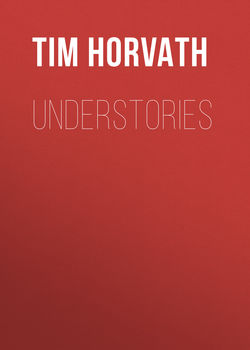Читать книгу Understories - Tim Horvath - Страница 8
На сайте Литреса книга снята с продажи.
Urban Planning:
ОглавлениеCase Study Number One
The mayor of Morrisania decreed that no longer would its citizens be plagued by rain. Over the airwaves, the voice that the pundits had dubbed “fascist . . . in a good way” rang out as though outrage were a stringed instrument; he plucked, bowed, implied nonintuitive fingerings. “What century are we living in,” he thundered, “that I still even need to think before I set forth from my door about what I will wear, for fear of getting drenched to the bone? Do not our heads have roofs over them? Do awnings not jut out from our doorways to curbs? Must we constantly adjust to the whims of outmoded gods and goddesses?”
Immediately, building began citywide with fanfare and all-hands-on-deck resolve. Grandmothers simmered marvelous soups, salvaging bones from the near oblivion of trash mounds. Construction teams lent out their brawniest, resplendent in colorful T-shirts sporting memorable slogans. Street performers busked with renewed vigor, sending sweat and falcons skyward and forging their own signatures in luminous contrails. Philosophers set up tables at which they contemplated in lively and vigorous fashion the premises and consequences of the whole endeavor, debating, for instance, whether the open or closed form of the umbrella was more authentic and fundamental. Closed was originary, yet its very existence had meaning only in the context of the open; never had these pallid intellectuals come so close to blows. School was canceled—what teacher, no matter how inventive, could hope to minister about roots of square in the midst of such fervor? The streets were closed to traffic and attics swiftly divested of twine, canvas, and wire—in sum, anything remotely resembling a tarpaulin or a zip line that would bear a covering.
Pulling aside those canvases that were least water-resistant upon which to work, artists rendered their visions of Morrisania. The futurists depicted pulleys and levers controlling a many-tiered canopy that would emerge from apartments and rooftops, and would come into existence as though instantaneously, each covering sloped and hemmed with gutters that, in labyrinthine fashion, would bear each drop on its cascade downward. Via these it would be shunted out to the Longinard River, coursing toward the sea after passing through a series of turbines that would keep the city energized for days. The surrealists’ visions were no less inspired, though their canopies were made of earlobes and genitals and their raindrops were engulfed by the sky.
Then, it began to rain. More, it began to pour, no ordinary rain, not even that which cats and dogs have long been associated with—through no fault of their own, I might add. No, this rain began as butter and moss and chinchilla pelts, gradually picked up until it was repo men and tenterhooks and foyers, and finally coalesced into an onslaught of grand piano lids and conveyer belts and marketing departments. Everyone ducked, tried to shield themselves, ran for cover. Cover was indoors, of course. Unfazed, the mayor planted himself firm in the crosshairs of an intersection and got on a megaphone. His voice was toxic violet putty. He called them cowards—no one knew whether he meant the citizens of Morrisania or the gods themselves. He pointed the megaphone skyward, wielding it as a makeshift umbrella, but the water funneled through it and it hit him like bottled riptide. He’d always been a bachelor, and his genes tried to jump ship at the last minute, but their life rafts were old and uninspected and had been devoured by the moths and rats and other vermin that had had the word plague hurled at them countless times before and now found only serenity in the fricative rub of its consonants.
